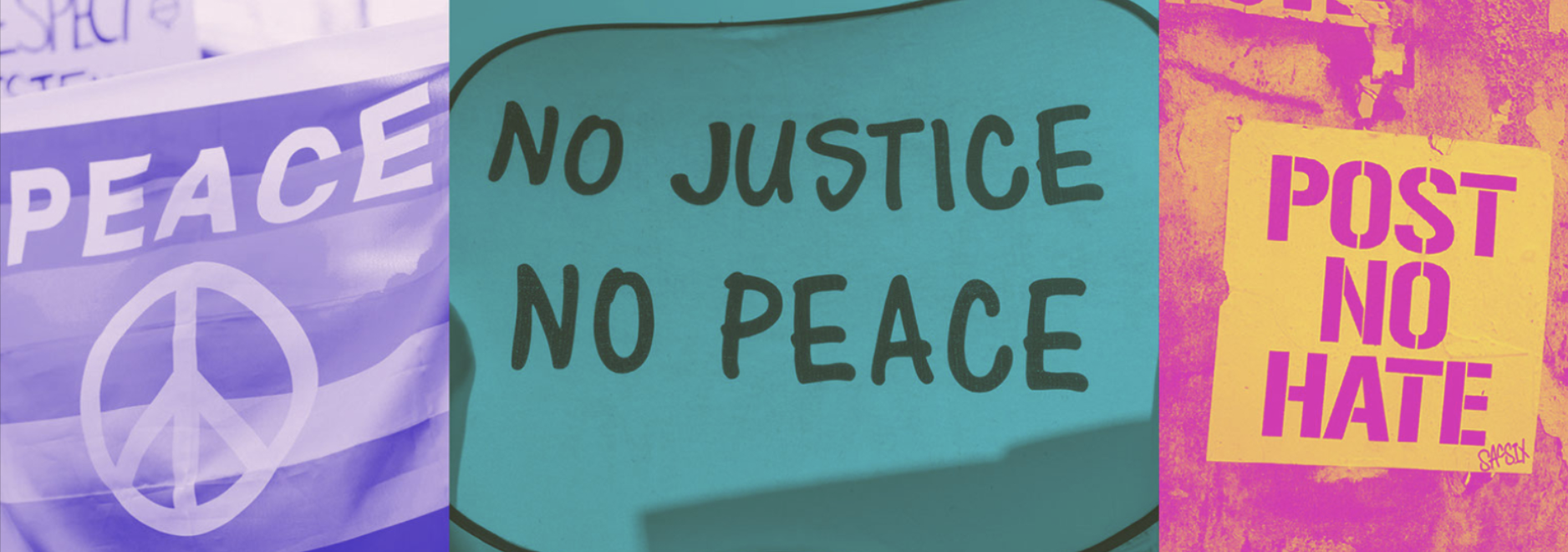Message from the Director/Peace Studies Core Mission
Message from the Director of Peace Studies
In 1945, one of the world’s most catastrophic events, World War II, pushed world leaders to establish the United Nations to promote peaceful relations among and within countries. But even with the United Nations, the promotion and sustenance of peace the world over is largely dependent on societal institutions, one of which is education. In 2021, the University of Missouri’s Peace Studies Program celebrated its 50th anniversary. While this anniversary was a major milestone, it also highlighted the continued need and drive for peace in the world. With developments such as the nuclear race, racial supremacy, and political violence that constantly threatens international peace and security that facilitates democracy, human dignity, equality, health of the planet and justice for all, Peace Studies is all the more significant today.
As the Director of Peace Studies, my goal is to ensure that the program facilitates discussions and actions that can stimulate peace in the United States and the world. Resolving conflict, protecting human dignity, eliminating social inequality and racial injustice, and promoting a healthy planet for all are critical issues that the program will tackle. At the same time, I recognize that our stakeholders and community are critical to the success of Peace Studies, and I am committed to continuing and establishing strong relationships with them, relationships that will promote public-facing programs and student education.
Peace Studies will continue to successfully attract students at the University of Missouri who understand that the program is a critical part of an interdisciplinary education that is important to the promotion of peace in the United States and the world. Peace Studies is offered as both a major and minor emphasis area in the BA in Interdisciplinary Studies, allowing students to examine global peace and social justice issues while preparing them for employment, volunteer assignments, and graduate study in critical areas such as conflict resolution, human rights, humanitarian assistance, sustainable development, social justice, nonviolent social change, and the understanding of cultural inclusivity.
Thank you for your support, and it is my honor to work with our stakeholders and community to continue Peace Studies at Mizzou as a highly successful program that stimulates positive change.
D.A. Dunkley
Director
Peace Studies Core Mission
Peace Studies is an interdisciplinary academic and community-based program. It seeks to educate students and the broader community about ongoing conflicts and the different local, national, and world situations that contribute to the breakdown of peace. With this focus, Peace Studies explores the possible ways of resolving those situations through evidence and questions developed from history, politics, economics, sociology, philosophy, religious studies, Black studies, and women’s and gender studies.
In addition, it draws on communication, media and military studies, and the natural sciences, to name just a few of the numerous disciplines that contribute to Peace Studies. Peace Studies graduates will essentially use humanities and social and natural science methods and critical studies to ask the hard questions about human frailty and human flourishing and the relationship between human and non-human life.
Therefore, it is appropriate that the Peace Studies curriculum include the climate emergency, inequalities based on class, gender, sexuality, race, food insecurity, access to education, public health, and political representation. It is vital that Peace Studies also include studies of literature and the visual arts. These fields help ensure that students and the broader community can better understand conflict and its resolution based on empathizing with the problems humans face in various locations.
The Peace Studies Curriculum
Students pursuing Peace Studies majors and minors will explore four interconnected areas or themes covered in the curriculum.
1. Nationalism and Conflict
Students analyze the nation-state as both an idea and fact. They gain insight into the nation-state as one relatively recent social, economic, and political organization. They explore, through case studies, the concrete shapes this idea has taken in modern history. Students take up the question of conflicts within and between nation-states and discuss how such conflicts have been managed, mitigated, and influenced by national and international frameworks.
2. International and Comparative Studies
Students examine global peace and social justice issues in the international arena. Students receive a solid grounding in global cultures while also considering power and violence as drivers of conflict. They explore such topics as diplomacy, conflict resolution, human rights, and the role of non-governmental organizations. Finally, they discuss issues that transcend national boundaries, such as the refugee crisis and global climate emergency.
3. The History of Global Activism
Students assess various forms of democratic social organizing and mobilizing to make the world fair and just. They explore the multiple approaches to the struggle for justice and examine how to accomplish social change when it runs counter to powerful interests and existing social norms.
4. Justice and the Public Good
Students investigate what constitutes justice, the public good, and the sometimes-competing ways we have defined these categories. Students explore the structures of social, economic, and political inequality, which often complicate and impede the quest for justice and the public good. They gain facility in openly and honestly evaluating their own beliefs and those of others. With this competence, students can consider building a world that ensures a good quality of life for people with different experiences and relationships to power.

